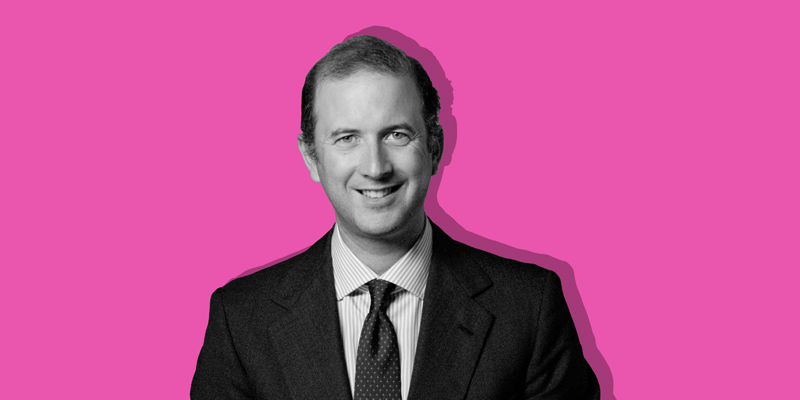
From tech to typography, there’s a concise and fascinating TED talk for everything. With the modern working world in such unpredictable flux, we collected seven of our favourites to shed some light on the workplace of 2019, straight from the experts…
1. Three myths about the future of work (and why they’re not true)
Speaker: Daniel Susskind is a Fellow in Economics at Balliol College, Oxford University and co-author of the best-selling book, The Future of the Professions
Watch it if… you’re worried about the robots taking over
Executive summary: With the rapid development of AI and other emerging robotic technologies, the question ‘will machines replace humans?’ is likely to be asked more and more often. Susskind(1) confronts this question and three misconceptions we have about our automated future, suggesting we ask something else: How will we distribute wealth in a world when there will be less – or even no – work?
2. How to train employees to have difficult conversations
Speaker: Spoken-word performer Tamekia MizLadi Smith
Watch it if… you’re a manager who wants to upskill your employees (and yourself)
Executive summary: While nobody enjoys having difficult conversations, sometimes they have to be had. That’s why it’s time to invest in face-to-face training that empowers employees for just such occasions, says spoken-word performer Smith. In her witty talk(2), she advocates a workplace training programme called ‘I’m G.R.A.C.E.D.’ that will inspire bosses and employees to communicate with compassion and respect. The key is to always let people know why their work matters.
3. How we’ll earn money in a future without jobs
Speaker: Futurist Martin Ford
Watch it if… you want to know what we’ll all be doing in 20 years
Executive summary: In a straightforward talk(3) about a controversial idea, Ford makes the case for separating income from traditional work and instituting a universal basic income. The future he sketches has been radically reshaped not just by robots but by the loss of the income-distributing power of human jobs. How will our economic systems need to adapt?
4. How to build (and rebuild) trust
Speaker: Harvard Business School professor, Frances Frei
Watch it if… you keep hearing about ‘trust’ in business and want to know more
Executive summary: Trust is crucially important – so what do we do when it’s broken? Here(4), Frei presents a crash course in trust: how to build it, maintain it and rebuild it. "If we can learn to trust one another more, we can have unprecedented human progress," says Frei. She knows what she’s talking about: she’s had real world experience, most recently working with Uber.
5. The surprising ingredient that makes businesses work better
Speaker: Marco Alverà (pictured above), an Italian/American businessman and CEO of Snam, Europe’s largest natural gas utility
Watch it if… you’ve ever been treated unfairly at work
Executive summary: Whether it’s not being invited to a friend’s wedding or getting penalised for bad luck or an honest mistake, unfairness often makes us so upset that we can’t think straight. But it’s not just a personal issue – it’s also bad for business, says Alverà. He explains(5) how his company works to create a culture of fairness – and how tapping into our innate sense of what’s right and wrong makes for happier employees and better results.
6. How diversity makes teams more innovative
Speaker: Rocío Lorenzo is a partner and Managing Director at The Boston Consulting Group
Watch it if… you want to build a better, more robust company
Executive summary: Lorenzo and her team surveyed 171 companies to find out if diverse companies really are more innovative. The answer was a clear yes. In her talk(6), Lorenzo dives into the data and explains how your company can start producing fresher, more creative ideas by treating diversity as a competitive advantage.
7. Why jobs of the future won’t feel like work
Speaker: David Lee, vice president of Innovation and the Strategic Enterprise Fund for UPS
Watch it if… you want more meaning from your work
Executive summary: In this thought-provoking talk(7), Lee suggests something simple yet radical – that in order to keep us relevant in the new world of work, we should start designing jobs that unlock our hidden talents and passions – the sorts of things we spend our weekends doing. "Start asking people what problems they’re inspired to solve and what talents they want to bring to work," he says. "When you invite people to be more, they can amaze us with how much more they can be."
Sources:
(1) https://www.ted.com/talks/daniel_susskind_3_myths_about_the_future_of_work_and_why_they_re_not_true
(2) https://www.ted.com/talks/tamekia_mizladi_smith_how_to_train_employees_to_have_difficult_conversations
(3) https://www.ted.com/talks/martin_ford_how_we_ll_earn_money_in_a_future_without_jobs
(4) https://www.ted.com/talks/frances_frei_how_to_build_and_rebuild_trust
(5) https://www.ted.com/talks/marco_alvera_the_surprising_ingredient_that_makes_businesses_work_better
(6) https://www.ted.com/talks/rocio_lorenzo_want_a_more_innovative_company_hire_more_women
(7) https://www.ted.com/talks/david_lee_why_jobs_of_the_future_won_t_feel_like_work



